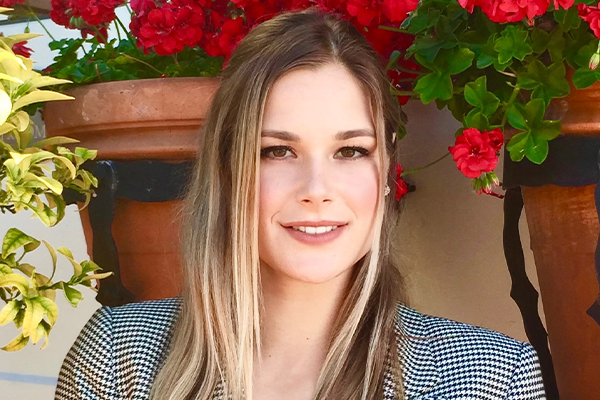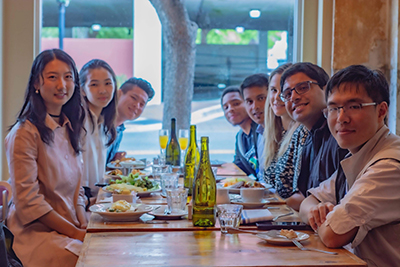Veronica Russell, PhD in Computational Biology and Bioinformatics

Hometown
Templeton, California
What inspired you to pursue this degree?
I come from a family of medical doctors, so I’ve been exposed to and interested in biology from a young age. In high school, I was also fortunate to have a passionate AP Biology teacher who sparked my interest in the quantitative side of biology. That experience led me to pursue my undergraduate studies in the College of Creative Studies (CCS) at UC Santa Barbara, where I had the freedom to design my own coursework and strengthen my quantitative background. I quickly realized that, given the scale of data being generated in biology today, computational skills were essential to explore the kinds of questions that intrigued me. This realization ultimately drew me to computational biology and bioinformatics, and inspired me to pursue a PhD in the field at Duke. Because of my exposure to the medical side, I’m particularly interested in applying this to clinically translational questions.
Why did you choose Duke?
I chose Duke because it has one of the oldest and most well-established programs in computational biology. At the time I applied, this field was still relatively under the radar, pre-dating the current computational and AI boom. I was also drawn to Duke’s rotation program, which allowed me to explore different labs, and to several faculty members whose research aligned with my interests. Beyond academics, I appreciated the positive and welcoming atmosphere during recruitment, as well as the temperate climate and affordable cost of living — important considerations for life during a PhD. Finally, Duke is my father’s alma mater, which also influenced my decision in a personal way.

Do you have a favorite memory from your program?
Since my PhD spanned the COVID-19 pandemic, I had a very non-traditional graduate school experience. While my research was fortunately not heavily disrupted since I could work remotely, it was difficult to transition to an isolating work from home schedule only six months into the program. That said, my favorite memories come from how the people in my program came together during that challenging time. We held regular Thursday Zoom happy hours, which became a comforting routine. Looking back, I really value the deep personal and professional relationships I formed during that period of shared resilience.
How do you hope to make an impact with your career?
I hope to bridge the gap between business and the worlds of biology and computation. I think not too many people have a skillset that spans these areas, and as AI is becoming commonplace across biotech and pharma a lot is lost in translation. I am transitioning into management consulting at BCG, and I’m excited to learn more about the business side so I can bring technical and research expertise to strategic discussions. Too often, people approach complex problems from only one perspective, which can create bottlenecks in translating research into clinical applications. I want to help overcome those barriers to ensure that scientific discoveries more efficiently reach the people they are intended to help.
What was the most important thing you learned at Duke?
The most important thing I’ve learned is how many external factors shape the course of research. From my undergraduate experience, I already understood that research is inherently ambiguous — there’s no “answer key” when you’re exploring the frontier of knowledge. But through my PhD, I came to fully appreciate the broader challenges that influence progress: securing funding, troubleshooting experiments/analyses, managing resources, navigating peer review, and fostering multidisciplinary collaborations. I now view the biotech and research landscape as a complex system — what biologists might call an ecosystem — in which success depends not just on scientific ideas, but on navigating logistical and interpersonal dynamics. You have to recognize which aspect of a project needs to be optimized at each stage and understand how to most effectively move it forward. Developing that strategic, holistic perspective has been one of the most valuable lessons of my PhD.